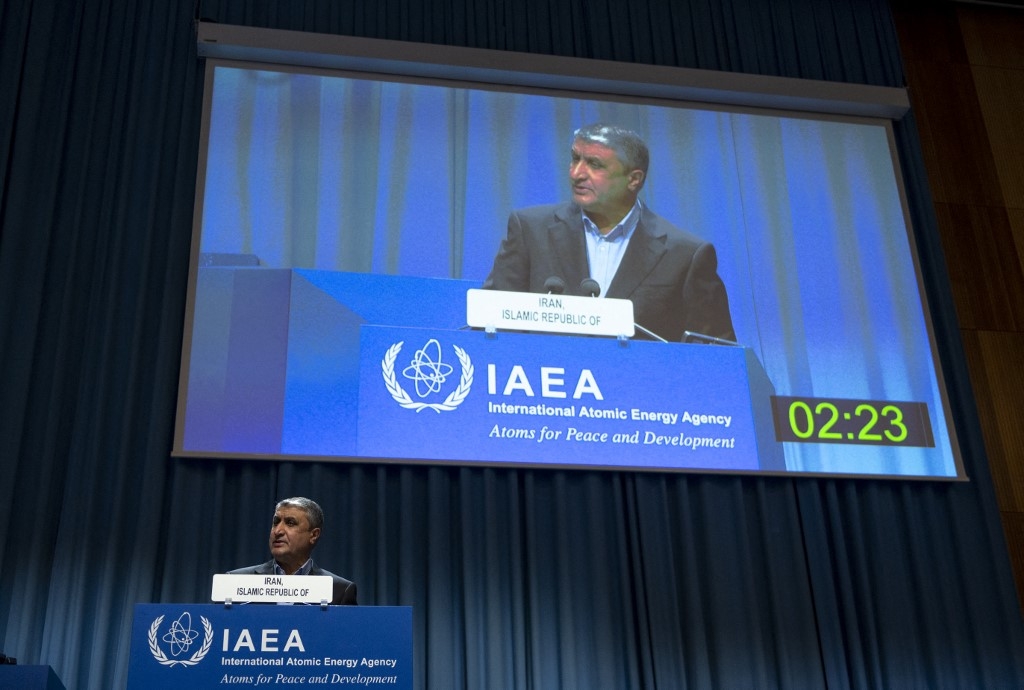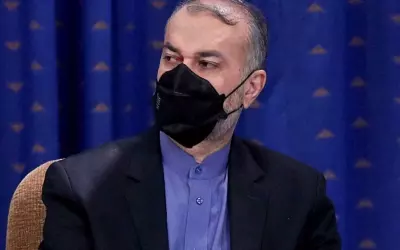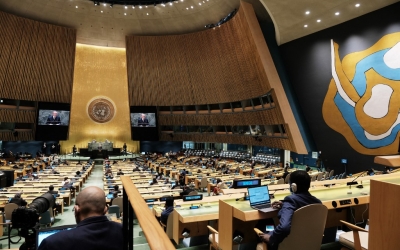Iran fails to fully honour agreement on monitoring equipment, says nuclear watchdog

Iran has failed to allow inspectors with the UN's nuclear watchdog to service monitoring equipment in the country as per an agreement that was struck two weeks ago, the International Atomic Energy Agency (IAEA) has said.
The IAEA, in a statement on Sunday, said that while the agency was allowed to access other facilities, Iran has failed to provide it access to the TESA Karaj centrifuge component manufacturing workshop to replace its cameras.
New MEE newsletter: Jerusalem Dispatch
Sign up to get the latest insights and analysis on Israel-Palestine, alongside Turkey Unpacked and other MEE newsletters
"Iran from 20–22 September permitted IAEA inspectors to service identified agency monitoring and surveillance equipment and to replace storage media at all necessary locations in Iran with the exception of the centrifuge component manufacturing workshop at the TESA Karaj complex," the IAEA statement said.
That workshop was the victim of apparent sabotage in June in which one of four IAEA cameras there was destroyed. Iran has not returned that camera's "data storage medium" and the IAEA said in a report this month it had asked Iran to locate it and explain.
"The [IAEA] Director General stresses that Iran's decision not to allow agency access to the TESA Karaj centrifuge component manufacturing workshop is contrary to the agreed terms of the joint statement issued on 12 September," the agency said.
Returning to the nuclear deal
The agreement, reached on the eve of a meeting of the IAEA's 35-nation Board of Governors, led Western powers to drop efforts to pass a resolution criticising Iran since the equipment's memory cards would be replaced just as they were due to fill up.
If such a resolution would have been passed at the meeting, hopes of resuming wider talks on reviving the Iran nuclear deal would have been seriously impeded, since Iran usually bristles at such moves and its new, hardline President Ebrahim Raisi has said it is prepared to return to the negotiating table but not under Western "pressure".
On Friday, Foreign Minister Hossein Amir-Abdollahian said Iran would return to negotiations aimed at reviving the 2015 nuclear deal - also known as the JCPOA - with world powers "very soon".
But US Secretary of State Antony Blinken told reporters in New York on Thursday that time was running out to save the nuclear deal.
"With every passing day, as Iran continues to take actions that are not in compliance with the agreement – particularly building larger stockpiles of highly enriched uranium to 20 percent, even to 60 percent, and spinning faster centrifuges," he said.
At some point in the future, "Iran will have made too much progress in its programme that would not be reversed simply by returning to the terms of JCPOA".
Middle East Eye delivers independent and unrivalled coverage and analysis of the Middle East, North Africa and beyond. To learn more about republishing this content and the associated fees, please fill out this form. More about MEE can be found here.



